




I am delighted to have this opportunity to write the foreword to an updated version of this important publication. In my role as Scottish Veterans Commissioner over the past two and a half years, I have had the opportunity to meet a number of LGBT+ veterans in Scotland. Some shared their stories of distressing experiences during the period of the homosexuality ban, but I am pleased to report that some who had served since it was lifted in the year 2000 had much more positive stories to relate.
While some harms can never be undone, thanks to the Etherton Review there has been real progress on making some reparation for the appalling treatment that some of our LGBT+ service people were subjected to. Encouragingly, the UK Armed Forces are now in the vanguard of equality and diversity practice and LGBT+ service people are actively welcomed, along with people with other protected characteristics.
The ongoing partnership between Age Scotland and Fighting With Pride is a testament to the continued progress in fostering a more open and inclusive culture within the Armed Forces and veteran community. I have been deeply impressed by the collaborative efforts of Unforgotten Forces, and this guide is a shining example of what can be achieved when organisations come together with a shared purpose.
For many older LGBT+ veterans, past discrimination has created barriers to accessing the support they deserve. I sincerely hope this excellent publication helps connect or reconnect you with the vital services available to you. Please use this guide to find the support that best meets your needs - no one should miss out on the help and advice they are entitled to.
Finally, I encourage you to share this guide with fellow veterans so that as many people as possible can benefit from it. Together, we can ensure that no one is left behind.
Susie Hamilton Scottish Veterans Commissioner

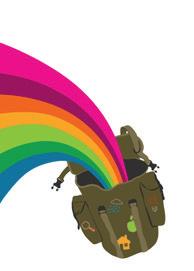
Today’s Armed Forces welcome diversity and proudly recruit members of the LGBT+ community. Their belief is that society is best served by a military that reflects the nation’s diversity. Discrimination, pressuring LGBT+ personnel to ‘come out’, and ‘outing’ them without consent, are all forbidden. However, this has not always been the case.
From 1967 until 2000, the UK Armed Forces and Ministry of Defence enforced a ban on LGBT+ service. Thousands of service personnel received a dishonourable discharge or were forced to resign because of their sexual orientation or gender identity.
Private ‘homosexual acts’ between two men over the age of 21 were decriminalised by the 1967 Sexual Offences Act. However, there were exemptions for the Armed Forces. As a result, gay male forces personnel were charged with sexual offences and sent to prison for a crime that did not exist in civilian life.
Although being lesbian was not illegal, the ban was enforced against any individuals outed, accused or rumoured to be members of the LGBT+ community. This also impacted upon heterosexual personnel accused of being gay.
Police investigations, harassment and intimidation were inevitably followed by immediate and permanent dismissal. Personnel lost not just their career but, in many cases, their accommodation, financial security, dignity, pension, family relationships and friendships. Many still feel distress, shame and anger today, often not regarding themselves as veterans, and being reluctant to access the veterans’ services they are entitled to use.

However, this is changing. Fighting With Pride, the LGBT+ military charity, has been leading work with governments, mental health services, charities and organisations to provide support and reparation to LGBT+ veterans, many of whom are isolated from the military community and support services. See page 17 for more information about the important work of this charity.
In addition, many charities have joined Unforgotten Forces, a consortium of Armed Forces and civilian charities led and coordinated by Age Scotland. These charities work together to deliver high quality joined-up support to boost the health and wellbeing of older veterans in Scotland. All Unforgotten Forces partners welcome older LGBT+ veterans and are committed to providing support services that are respectful and responsive to their needs.
If you are an LGBT+ former member of the Armed Forces, and have not accessed veterans’ services before, this guide outlines some of the support that is available to you. It also provides details of restorative measures now being offered to LGBT+ veterans affected by the ban. It aims to reinforce the message that the Armed Forces community welcomes LGBT+ members and wishes to provide them with the respect, support and services they deserve as veterans.
We recognise that the language used by LGBT+ people to describe their experiences and identities is varied and changes over time. We are committed to reflecting this diversity but acknowledge that terms used in this guide may change in their usage or become outdated.

12 January 2025 marked the 25th anniversary of the lifting of the ban on LGBT+ service – also known as the ‘gay ban’. To recognise the occasion, a new LGBT+ Armed Forces Community Memorial will be incorporated in the National Memorial Arboretum in Staffordshire. This will be unveiled in autumn 2025, in time for Remembrance Day events.
While the lifting of the ban is to be celebrated, it remains important to recognise its serious and far-reaching impact on those affected. Many service personnel still live with its consequences, as well as the memories of the humiliation they faced.
Following a campaign by Fighting With Pride, giving evidence to a Select Committee for the Armed Forces Bill 2021, the Ministry of Defence (MOD) and the Office for Veterans’ Affairs (OVA) jointly commissioned an LGBT Veterans Independent Review. This was chaired by Lord Etherton, the first openly gay judge of the Senior Courts. The review examined evidence provided by 1,128 armed forces personnel who served under the ban, including nearly 700 from the LGBT+ veterans community. In doing so, it sought to understand the experiences of those affected and bring to light the extent of the damage caused.
The official report, published in July 2023, makes recommendations for 49 restorative measures to address the impact of the ban. These aim to acknowledge the unjust consequences of the ban and to ensure LGBT+ veterans are officially recognised for their service. The restorative measures are discussed in more detail later in this guide. You can view Lord Etherton’s report at www.gov.uk/government/ publications/lgbt-veterans-independent-review. The UK Government has accepted all 49 of the report’s recommendations, nearly all of which have already been implemented.

The report also considers health and welfare support that could be offered to LGBT+ veterans, both from national services and relevant charities. The government is providing funding to charities that support veterans to ensure they can help with claims for reparations, among the other services they provide.
Military charity Fighting With Pride was also set up especially to raise awareness and expand the support available to LGBT+ veterans, particularly those affected by the ban. See page 17 for more information about Fighting With Pride and other support organisations.

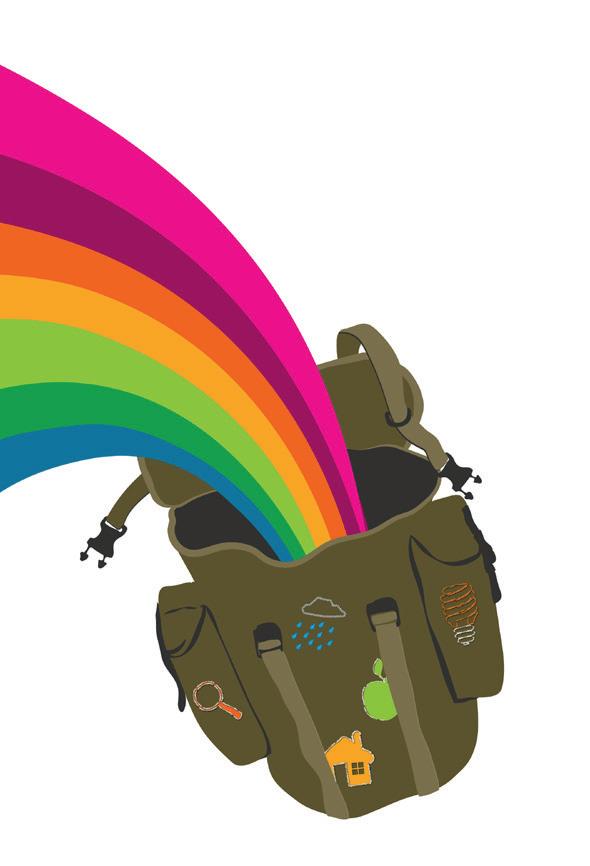
In 1988, whilst serving at Edinburgh Castle with The Royal Highland Fusiliers Military band, 21-year-old Paul was accused by the Royal Military Police of being gay. He was arrested, investigated and interrogated by the Special Investigation Branch and then discharged from the Army for being gay.
“Music has always been in my blood and at the age of nine I joined my local town brass band and worked my way up the ranks to solo cornet, playing many solos at local concerts with the band. In 1982, the Scots Guards Band came to perform at the grammar school I attended. I got the chance to perform with them and after that I knew I wanted to be a military bandsman.
“The following year, at the age of 15, I auditioned at Edinburgh Castle to join the Army as a bandsman, and I passed with flying colours.
“It was during my time in Aberdeen I realised I was gay, and I had to pretend that I was going to visit my relatives and pretended to have girlfriends to get out and meet friends from Aberdeen’s gay scene.
“In the summer of 1988, whilst I was at Edinburgh Castle practicing for the Edinburgh Military Tattoo, I was taken aside by the Royal Military Police. The next day I was arrested, and I was then taken back to Redford Barracks where my locker and personal space were wrecked by the Regimental Police. They also went through my personal belongings, ripped apart my bed wearing latex gloves and broke into my personal locker to see if there were signs that would prove I was gay.

“The Special Investigation Branch interrogated me for hours and I asked for a lawyer, but they refused, so I had no legal representation. They kept on asking if I was homosexual and had ever engaged in sex with another man in the armed forces. I denied this but was still imprisoned for the weekend in the gaol at my barracks.
“After I was interviewed by the Commanding Officer, I was dishonourably discharged from the Army and had no support or help apart from Rank Outsiders.
“I am now proud of who I am, attending the Community Veterans Support charity in Govan, Glasgow and I support Fighting With Pride. I am now happily married and have a fantastic husband and I attend veterans’ events, which is helping me.”

Following the recommendations of Lord Etherton’s report, the UK Government is offering a number of restorative measures, also called reparations. These aim to recognise the damage caused by the ban on LGBT+ Armed Forces personnel and to provide an opportunity for official recognition of their service. A summary of these measures is provided in the following sections.
Servicepersons affected by the ban are invited to apply for any of the measures they are entitled to receive. Some measures are also open to a Person of Sufficient Interest to a deceased serviceperson who was affected by the ban during life. The Person of Sufficient Interest must be someone who had a long-standing, close personal relationship with the deceased, and who could be expected to represent their wishes. This includes next of kin and could also be a relative, spouse, civil partner, long-term partner, child(ren), adopted family member or similar.
For full details of the restorative measures and to make an application, visit www.gov.uk/government/publications/lgbtveterans-apply-for-restorative-measures or call the Veterans UK helpline on 0808 1914 218.


The non-financial restorative measures already being implemented that you may be eligible to apply for include:
• an HM Armed Forces Veterans’ Lapel Badge
• an Etherton Ribbon badge – see below for more information
• restoration of medals that were removed or withheld upon discharge solely based on your sexuality
• an HM Armed Forces Veteran Card – to identify yourself to services and charities that offer support
• individual letters of apology from the relevant Service Chief of Staff
• a replacement beret, cap badge or both
• a written reproduction of the Prime Minister’s apology
• replacement discharge papers where your original discharge or dismissal is disregarded, qualified or nullified
• the opportunity to provide testimony to form part of the historic record
• having your certificate of service reissued
• former Officers having details of their service published in The Gazette
• restoration of rank where this was removed
• qualification of administrative discharges.
The final four measures will also be available for those who served before 1967. For some restorative measures, you can choose either to receive them by post or at a Service ceremony or event.

For more information about restorative measures and to apply, visit www.gov.uk/government/publications/lgbt-veteransapply-for-restorative-measures or call the Veterans UK helpline on 0808 1914 218.

This is an enamel pin badge in the form of a ribbon tied in a bow. It has single-service colours at the top, a Veterans badge in the centre, a rainbow flag on one tail of the ribbon and a Latin inscription on the other. The inscription reads ‘Superbia’ and ‘Iustitia’ – ‘Pride and Justice’ [Latin does not use the letter J; the letter I is used in its place].
The badge follows recommendation R10 of Lord Etherton’s Final Report on the LGBT Veterans’ Independent Review. It is for those who served during and were affected by the ban, or a Person of Sufficient Interest.
If you have previously registered for the ribbon, also known as the R10 Service Ribbon, you will receive one as requested, either by post, or in person at a future Service ceremony or event.
If you have not done so already, you can apply for an Etherton Ribbon badge by completing the relevant registration of interest and application forms. Visit www.gov.uk/government/collections/lgbtveterans-support-and-next-steps or call the Veterans UK helpline on 0808 1914 218.
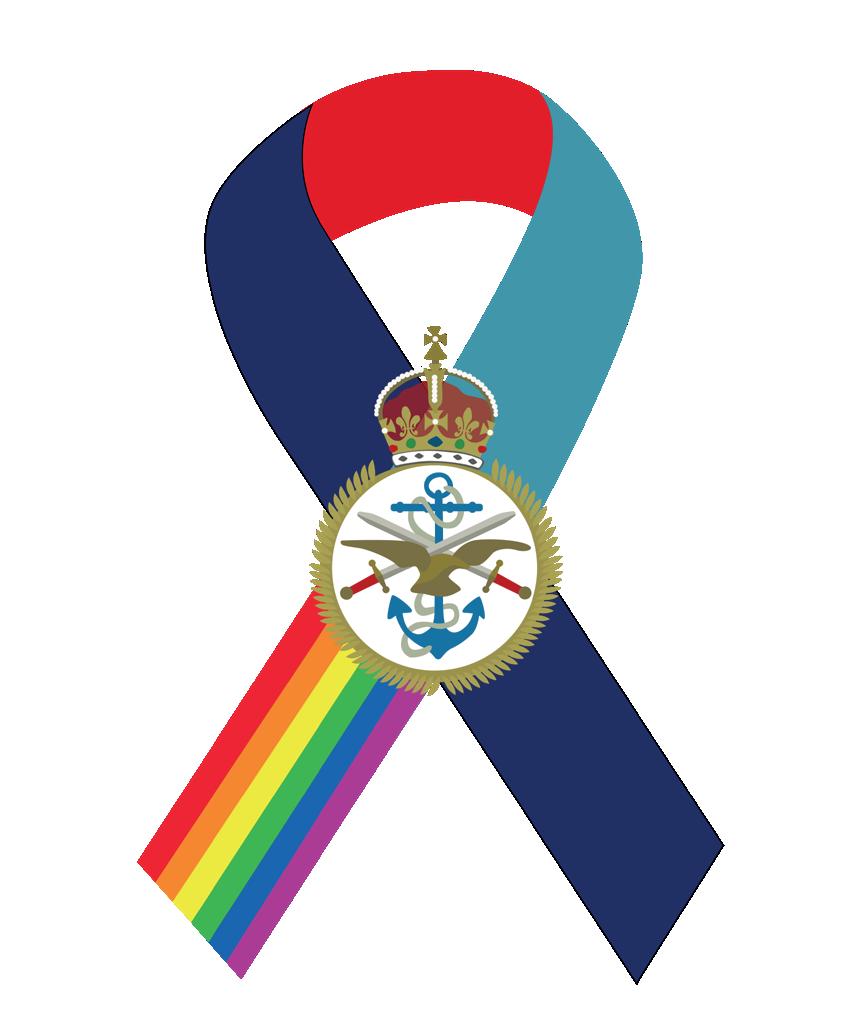

Recommendation 28 of Lord Etherton’s final report was to provide a financial award for veterans affected by the ban. This aims to recognise the impacts of the ban whilst in service.
Details of the LGBT Veterans Financial Recognition Scheme were finalised in December 2024. There are two elements to the Scheme. These are summarised in turn below.
(1) LGBT Dismissed or Discharged payment – for those dismissed or administratively discharged, including officers ordered or instructed to resign or retire by a Service Board, solely on the basis of their actual or perceived sexual orientation or gender identity, between 1967 and 2000. All successful applicants will receive a fixed payment of £50,000.
The Dismissed or Discharged Payment will not be awarded to those who left at the end of their contract, purchased their discharge as a right, opted not to extend their contract, or submitted notice to terminate their contract. People in these categories can, however, apply for the second financial recognition payment outlined below.
(2) LGBT Impact payment – for those who suffered mental or physical harm as a result of the ban, during the period of their service in HM Armed Forces up to the point they left service. This includes experiences of bullying, harassment, intrusive investigations, invasive medical investigations or treatments, imprisonment, etc. Applications for the Impact Payment will be assessed by an independent panel, who will determine the level of payment – on a scale from £1,000 to £20,000 – depending on the severity of the harm experienced by applicants.
Some LGBT veterans will be eligible to apply for both elements of the financial recognition scheme.
Any payments received under either element of the LGBT veterans financial recognition scheme will be exempt from income tax and will be disregarded by DWP/Social Security Scotland in assessment for Universal Credit or other means-tested benefits.

The LGBT Veterans Financial Recognition Scheme is now open for applications, but it is time limited. The scheme will close at 2359 hours on 12 December 2026.

A Defence Gateway login/registration is required for confirmation of service identity, access to the application stage App and for payments to be processed. You can sign up at oauth2.defencegateway.mod.uk/lgbt. For help registering with Defence Gateway, contact Legion Scotland’s Veteran Community Support Service (www.legionscotland.org.uk/befriending or call 0131 550 1560) or your local Citizens Advice Bureau.
Those intending to apply to the LGBT Financial Recognition Scheme are advised not to rush into completing an application. Complete the Defence Gateway registration process first, before taking time to gather the necessary information, draft strong supporting narratives and ensure that the application is as complete as possible at the point of submission.
Once an application to the Financial Recognition Scheme is submitted, there is only a two-week window of time to make any amendments or additions before it progresses to the initial phase of checking by the scheme administrators.
For more information and to submit an application to the LGBT Veterans Financial Recognition Scheme, visit www.gov.uk/lgbtveterans.
Fighting With Pride also has detailed guidance and a legal rights leaflet about the LGBT Veterans Financial Recognition Scheme on its website. Visit www.fightingwithpride.org.uk/reparations.

If you need help completing your application, Fighting With Pride can support you with this. Visit www.fightingwithpride.org.uk. You can also call Poppyscotland/Royal British Legion on 0808 802 8080. Contact the Age Scotland helpline on 0800 12 44 222 for help finding other support in your area.

In Scotland, the Historical Sexual Offences (Pardons and Disregards) (Scotland) Act 2018 pardons all men who were convicted of a same-sex sexual activity that is now legal. You do not need to apply for this pardon; it is automatic. However, you will need to apply to have the conviction ‘disregarded’. You will need to provide evidence of the disregard before you can apply for your medals to be restored.

For full information and to apply for a disregard, visit www.gov.scot/publications/remove-historical-conviction-forsexual-activity-between-men.
If you cannot get online, you can call the Veterans UK helpline on 0808 1914 218 or write to the Scottish Government’s Criminal Law and Practice team for a paper application form, at:
Area GW.14
St Andrews House
Regent Road
Edinburgh EH1 3DG

“I joined the Women’s Royal Army Corps (WRAC) in October 1974, just over 17 years old. I had an exemplary career that I totally enjoyed. I had never been charged or put on report throughout my career. The enjoyment all ended just after Easter 1984 when, after a night shift and I was sleeping.
“I was forced to get up so that my room could be searched, which was a totally humiliating experience. Items such as letters, postcards, fluffy toys were taken as part of the investigation. I never did get them back.
“This was followed a few days later by three months of interrogations by the Special Investigation Branch (SIB) that would happen any time of the day carried out by two SIB investigators. I suffered from sleep deprivation, missed meals, no comfort breaks and the continuous bombardment of opposing questions, so it didn’t matter how you answered you were admitting guilt to one or the other investigator.
“Eight weeks in, I was posted to Catterick. I tried to decline this posting as I was overqualified and still under investigation but was unsuccessful. I arrived on a Thursday. On the Friday morning, I went to see my Commanding Officer (CO), which I thought was a welcome interview, but it ended up as a dressing down. I was made to feel humiliated and dehumanised, and he made sure that I knew he thought I was a sexual pervert/predator and didn’t want me anywhere near the girls under his command.
“I just wanted to shrivel up and die, as I had never been treated this way, ever. I was to leave the barracks that day, so I packed and was sent to the WRAC training depot in Guildford. Upon arrival there, they didn’t want me either and I was sent home on extended leave.

“It was late, so I stayed over in London and when I eventually got home there was a message with my parents saying I had to go straight back to Guildford. Once there, I was reprimanded for not going straight home and was told to go back to my original unit. By the time I got there I was an emotional mess.
“On reflection, I now believe that all this was done on purpose, to see what I would do and to break me down: which worked, because I was such a wreck that when the interrogation started again it wasn’t long before I was confessing to being a lesbian. But that didn’t stop the interrogators: they wanted intimate details and names of others. I declined to cooperate.
“Within days I was told I was being discharged from the Army for being gay. Through 10 years the Army had provided everything for me. I had no experience of civilian life, not knowing how to sign-on for benefits, register for doctors and dentists, how to write a CV or apply for jobs. It was scary. I left the army with no self-confidence, low self-esteem and poor body image, which has never really gone away over the last 40 years.
“I didn’t identify in any community - veterans or LGBT - and I went off the rails. I became socially isolated, not knowing how to make friends with the fear of my past coming out and repeating itself. At times over the last 40 years, if it had not been for family and friends, I would have been homeless. I found it difficult to have relationships, as the fear was always in my mind about what had been said - that I was a sexual predator.
“I applied for a job at British Aerospace in Stevenage. I was perfect for the job in a mailroom and the interviewer thought so as well, until I mentioned being kicked out of the army. Then it all changed, and I didn’t get the job. So, going forward, I never mentioned my army career unless asked, then kept it vague, as I couldn’t face the disappointment and looks.

“In 2004, I met a lady who two years later became my wife. It was a fulfilling marriage: however, she passed away in 2020. My one regret is that I was unable to open up to her about my past in the army and being thrown out, as I was so embarrassed and ashamed. I couldn’t bear it if it made her think less of me: which now, in the clear light of day, I know would not have happened, but I was so distressed and obsessed with the shame of it I could not take the risk. It meant I did not commit myself fully to the relationship. Due to COVID and lockdown, I was unable to be with my wife when she passed, making her passing extremely painful, which in turn led to the feelings that had been buried deep from the past coming to the forefront.
“Taking part in the Lord Etherton review was a hope to start the healing process, and joining Fighting with Pride for support was the beginning of a cry for help. I could not switch off the feelings coming through my brain, sleepless nights and me becoming more impatient with situations that used to not bother me. Having frustrations and feelings of wanting to smash everything made me realise I needed more than support: I needed help.
“I was referred to Veterans First Point and am due to start treatment shortly. Realising how hard the army worked to get me kicked out, without any thought to the psychological damage it’s caused, left me unable to fully trust anyone: not thinking I was a veteran and not belonging to any community, including the LGBT community.
“I’ve got to the stage where I know I am a veteran but still don’t feel it. I’m taking baby steps into the LGBT community but still feel I don’t belong there. I have begun what I see is a long journey and with some help I will be able to cope and understand my feelings.”

Founded in January 2020, Fighting With Pride is a military charity supporting the health and wellbeing of LGBT+ veterans, service personnel and their families. It has developed partnerships with NHS England, the Royal British Legion, SSAFA and Stonewall, and is working with many Armed Forces charities, organisations and NHS mental health trusts in Scotland, Wales, England and Northern Ireland. It is also a member of Unforgotten Forces (see below for further details).
In particular, Fighting With Pride is supporting those most impacted by the ban on LGBT+ personnel serving in the Armed Forces prior to January 2000 and helping reconnect these veterans with the military family and support services. Fighting With Pride provides access to information resources, support, events and activities. The charity triggered the LGBT Veteran’s Independent Review after giving evidence to the Select Committee for the Armed Forces Bill 2021, and was instrumental in encouraging LGBT+ veterans to come forward with their stories for the Independent Review. It also campaigned for the financial reparations available to those affected by the ban. Fighting With Pride is now working with the UK and devolved governments to provide support delivering the financial and other reparations recommended by the Review’s final report.

Fighting With Pride has also developed the Pride in Veterans Standard (PiVS), a UK-wide programme designed to help organisations meet the needs of LGBT+ veterans. Organisations that have obtained the standard have demonstrated an understanding of the issues faced by, and the needs of, LGBT+ veterans. They have also shown they are welcoming to and supportive of LGBT+ veterans, serving personnel and their families.
Age Scotland and almost all the organisations mentioned in this guide have PiVS recognition. If you see the PiVS logo on an organisation’s publications or website, you can be confident that they are allies of the LGBT+ veterans’ community.

For more information visit www.fightingwithpride.org.uk/ pride-in-veterans-standard. You can view a list of current PiVS members at www.fightingwithpride.org.uk/members.
Fighting With Pride also won a Government-funded bid to lead delivery of an LGBT Armed Forces Community Memorial, as another recommendation of the Etherton Report (R17-19). The memorial is to be placed at the National Memorial Arboretum in the Autumn of 2025. For more details see www.fightingwithpride.org.uk/lgbtarmed-forces-community-memorial.

For information and advice, or to keep up with the latest Fighting With Pride news, visit their website www.fightingwithpride.org.uk, their Facebook page www.facebook.com/fightingwithpride or email info@fightingwithpride.org.uk.

Recognising that LGBT+ personnel often did not have a positive experience within the military, the Royal British Legion created its first LGBT+ and Allies branch in 2018. It aims to recognise the contribution of LGBT+ people who have served in the military and encourage them to seek the support they need.
Both the Royal British Legion and its sister organisation Legion Scotland provide advice and support to their members on a wide range of topics, including money, pensions and benefits, care, independent living, employment and social support. Both organisations also have the Pride in Veterans Standard.
The LGBT+ and Allies branch is open to serving and former members of the Armed Forces, and civilians, across the UK.

For more information or to become a member, visit www.britishlegion.org.uk, or call 0808 802 8080. You can also find them on Facebook at www.facebook.com/LGBTQrbl.
This government service is a single point of contact for veterans and their families. Whatever it is you need help with, they can put you in touch with the organisations best placed to give the advice and support you need. Visit www.veteransgateway.org.uk or call 0808 802 1212.
Unforgotten Forces is a consortium of Armed Forces and civilian charities led and coordinated by Age Scotland. These charities work together to deliver high quality joined-up support to boost the health and wellbeing of veterans in Scotland aged 60 plus. All Unforgotten Forces partners welcome older LGBT+ veterans and are committed to providing support services that are respectful and responsive to their needs. Visit www.age.scot/unforgottenforces or call the Age Scotland helpline on 0800 12 44 222 for more information.

One in four people experience mental ill-health at some point in their lives. If you are worried about your mental health, or feel that you are struggling to cope, speak to your GP. They can help you to understand what is happening to you, discuss treatment options and lifestyle changes that might help, make specialist referrals if needed and arrange follow-up appointments to see how you are getting on.
If you are experiencing a mental health crisis and feel that you are in immediate danger, for example because you have injured yourself seriously or have taken an overdose, call the emergency 999 number. If you already receive help with mental ill-health, and you need to speak to someone urgently, you may have been given a crisis line number to call. If not, or you can’t get through to them, contact NHS 24 on 111.
Listed below are several organisations that provide mental health and wellbeing support and advice, some of whom specialise in helping veterans with mental health conditions.
The following organisations are available 24 hours a day to provide mental health and wellbeing support.
Combat Stress provides 24-hour confidential advice and peer support for veterans with mental health conditions, their families and carers. Call their helpline on 0800 138 1619, text 07537 173 683 or visit www.combatstress.org.uk.
If you are going through a tough time, Samaritans can help you to explore your options, understand your problems better or just be there to listen. They are available 24 hours a day, every day. Contact them on 116 123 or visit their website www.samaritans.org.

In Ayrshire and Arran, Tayside, Borders, Fife and Lanarkshire, Veterans First Point can support veterans with mental health and well-being. The service is staffed and developed by veterans and provided by the NHS. Visit www.veteransfirstpoint.org.uk or call the Age Scotland helpline on 0800 12 44 222 for help finding details of your local service.
Togetherall is an online mental health and wellbeing service. It includes an anonymous online community moderated 24-hours a day by licensed mental health practitioners. It also offers self-help tools, courses and tailored support. You can sign up for free at www.togetherall.com.
Breathing Space can support you if you are feeling overwhelmed and need to speak to someone. You can talk about what’s on your mind or ask about helpful resources in your area. The service is available from 6pm to 2am Monday to Thursday, and 6pm to 6am Friday to Monday, on 0800 83 85 87. Visit www.breathingspace.scot for more information.
Veterans Assist Scotland connects veterans and their families to organisations and services across Scotland. They have detailed online information on many topics including physical and mental health and wellbeing, care, money, housing and employment. Visit their website at www.veterans-assist.org or call 0131 550 1561.

You are entitled to ‘priority’ treatment for health problems caused or made worse by your military service. This means you should be given priority on NHS waiting lists unless there is an emergency case or a case that demands higher clinical priority.
If you think you may be eligible for priority treatment, tell your GP or hospital that the mental or physical condition relates to your time in the Armed Forces. You can also ask for your veteran status to be recorded on your medical records so that other health professionals can see this. You do not need to be receiving a War Pension or Guaranteed Income Payment if the health professional treating you agrees your condition is likely a result of your service.
Healthcare services have a duty to provide care that is fair and equal. You can make a complaint if you feel a health service has treated you unfairly because of your sexual orientation or gender identity. You can also make a complaint if you have difficulty accessing priority healthcare. Contact the Patient Advice and Support Service (PASS) on 0800 917 2127.

Armed Forces veterans live all over the UK and the world, so many of the organisations that serve them operate online to reach as many people as possible.
The internet can be useful in many ways, from accessing services and keeping in touch with friends and family, to doing your shopping and banking. It can seem confusing if you are new to using the internet or don’t feel confident, but there is support available.

Abilitynet can help older people to get connected, use online services and deal with technical issues. You can call their helpline on 0300 180 0028 or visit www.abilitynet.org.uk.
For help finding computer classes in your area call the Age Scotland helpline on 0800 12 44 222.
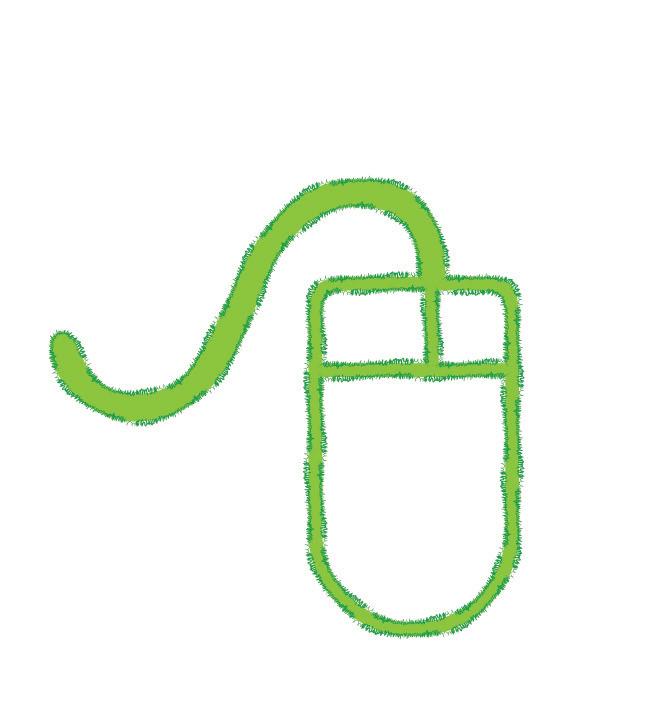

Stonewall Scotland exists to let all lesbian, gay, bi and trans people know they’re not alone. It empowers and supports individuals to make change happen and achieve their full potential. It helps institutions and organisations embed an inclusive and accepting culture, works with communities to change hearts and minds, and campaigns and lobbies government to change laws that do not ensure equality for LGBT people, or do not go far enough. Visit www.stonewallscotland.org.uk.
LGBT Health and Wellbeing has a helpline that can provide emotional support and practical information about a wide range of LGBT health and wellbeing issues. Call 0800 464 7000 12pm9pm on Tuesdays, Wednesdays and Thursdays and 1pm - 6pm on Sundays, or visit www.lgbthealth.org.uk.
Galop is the national helpline for LGBT+ victims and survivors of abuse and violence, providing them with practical and emotional support. Call 0800 999 5428 10am - 5pm on Mondays, Tuesdays and Fridays and 10am - 8pm on Wednesdays and Thursdays. For more information, visit www.galop.org.uk.
You can call the Age Scotland helpline for information about local groups and services in your area. Some of these are tailored to Armed Forces veterans, giving you the opportunity to enjoy regular camaraderie with others from the ex-service community, regardless of how long, or how long ago, you served. Call the Age Scotland helpline on 0800 12 44 222 or email info@agescotland.org.uk.
Our Veterans Guide to Later Life also provides information about services and support available to veterans across Scotland. You can order a copy by calling our helpline on 0800 12 44 222 or visit www.age.scot/publications.


Age Scotland has a large number of information guides, available both on paper and online. Some of them are specific to veterans of the Armed Forces, or to the LGBT+ community.

To order any of our guides free of charge, call our helpline on 0800 12 44 222, or visit www.age.scot/information.
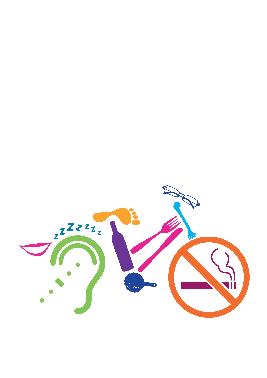
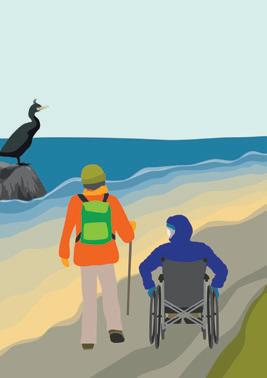

The Age Scotland Helpline can provide information and advice, relevant leaflets or details of organisations that could help you. If there is anything you need to know that is not covered in this guide, call Age Scotland’s helpline on 0800 12 44 222. This booklet is intended as a guide only and is not a full and definitive statement of the law. We are grateful to Fighting With Pride for their support in developing this guide.
Unforgotten Forces and the veterans team at Age Scotland 0333 323 2400 veteransproject@agescotland.org.uk www.age.scot/unforgottenforces Age Scotland helpline 0800 12 44 222

The LGBT+ Military Charity info@fightingwithpride.org.uk www.fightingwithpride.org.uk
/fightingwithpride
@fightingwpride
/fightingwithpride
We are grateful to the Scottish Government for part-funding this publication VET 11 Mar 2025